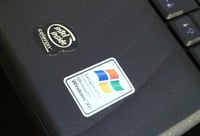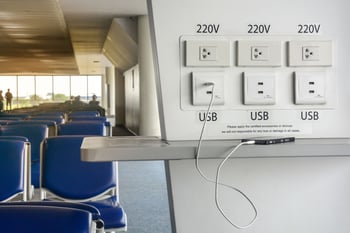 If you haven't already heard, Microsoft's Windows XP operating system is being retired April 8, 2014. Considered revolutionary in its day, XP was released worldwide for retail sale on October 25, 2001.
If you haven't already heard, Microsoft's Windows XP operating system is being retired April 8, 2014. Considered revolutionary in its day, XP was released worldwide for retail sale on October 25, 2001.
It’s hard to imagine ANY technology lasting for over 13 years in today’s fast changing environment but XP will have done that and more before its final bell is rung.
What does the retirement of XP mean to you? It means that it will no longer receive any sort of updates or support from Microsoft. Those crazy folks out there who create malware to wreak havoc on the rest of us will then have a field day. If you have ever examined the list of patches on a Windows XP computer it's nothing less than insane!
The environment we live in today is completely different from when this version of Windows was created. Microsoft has been hard pressed to close all the holes in this operating system as it's aged and when they stop, the result will be quick and painful.
When Windows XP retires, it will not be long before a network with a Windows XP machine will be infected. Often a company won't even know an infection has been introduced and its data - especially things like contact lists - can be harvested to devastating and embarrassing results. No anti-malware in the world will save a company from this sort of intrusion.
While the jury is still out on Windows 8, Windows 7 has been a solid operating system almost since day one. For many of our clients who've made the move, the transition from Windows XP to Windows 7 has gone extremely well. Occasionally there have been some compatibility issues, but nothing that we can't work through.
Best of all with the new Windows versions you can now see and utilize ALL of the memory in your computer. Not only is it easy to move from Windows XP to Windows 7 - but you also get a significant speed increase, plus far better stability and reliability.
However, the problem many companies still running Windows XP will face is related more to the compatibility of the application software that they're running. We know of a few companies who still cling to Windows XP to be able to run their legacy applications (in fact, don't tell anyone, but we have a couple of legacy apps here that we're going to have to deal with - and soon!).
More often than not, the reason the old software is in place has to do with expired support contracts or the cost of upgrades rather than functionality, but occasionally there are functional differences.
At some point, even companies who have fallen into this situation must take action. So consider the implications of a major application that needs a major upgrade. This takes planning, forethought, and often the support of an experienced IT Service Provider. No matter what it will take, planning is crucial and a big picture view is more important than ever.
If you have a Windows XP or a mixed network, you still have time to start planning. You cannot risk the types of attacks that will become prevalent once support stops and you will need time to sort out all of the implications of the change. Here are a couple of things you should consider:
- have your IT Service Provider or IT Department perform an inventory of your applications in use
- compare the requirements to your existing network
- create a written plan with the assistance of your IT Service Provider or IT Department
- use the plan to create a budget for financial planning purposes
- set a timeline to ensure that all changes are completed before the retirement of XP
- use this as an opportunity to do other things such as standardization, streamlining processes, and/or reducing maintenance costs
Many of you have already made the change to Windows 7, however even some of those networks may have a Windows XP machine sitting on the system somewhere. Don't forget about those unheralded systems such as voicemail or security systems.
These dark horses could lead to problems. Make sure you check your network thoroughly because all it's going to take is one Windows XP machine for something bad to happen.
/fpa-logo-tagline.gif)





